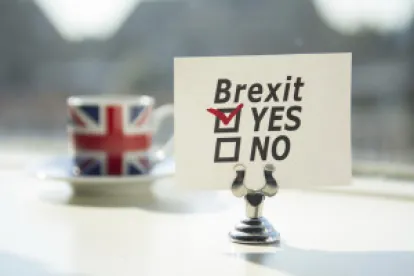Much as the recent U.S. Defend Trade Secrets Act establishes uniform federal trade secrets protections across the states, the EU Trade Secrets Directive (the “Directive”) harmonizes similar protections across its Member States to encourage cross-border investments. The Directive addresses hot topics and balances competing interests, including not only trade secrets and confidential information but also employee rights, whistleblowing, cybersecurity, infringing goods, employee mobility and freedom of expression and information.
Trade secrets are one of the most common forms of innovation and know-how, yet they remain one of the least protected forms of intellectual property and confidential information in the diverse EU legal framework. Achieving a balance in proportionality between protection, abuse of process and employee rights has proved challenging. The Directive is designed to provide increased certainty around the protection of trade secrets and confidential information, but it is measured to avoid interference with other relevant laws and interests.
Member States now have until June 9, 2018 to implement the Directive.
UNIFORM DEFINITION OF TRADE SECRETS
The Directive defines a “trade secret” as information which meets each of the following criteria:
-
it is not generally known among or readily accessible to persons within the circles that normally deal with that kind of information,
-
it has commercial value because it is secret and
-
it is subject to reasonable protective measures by its lawful holder to keep it secret.
Protectable information can be in the form of documents, objects, materials, substances and electronic files containing the trade secret or from which the trade secret can be deduced. Commercial value can include scientific and technical potential, business or financial interests, strategic positions or the ability to compete.
VIOLATIONS – WHAT’S IN?
The Directive prohibits unauthorized access or copying, misappropriation or breach of a contractual or legal duty not to disclose. Alongside these, any other conduct considered circumstantially contrary to honest commercial practices is outlawed, as well as producing, selling, importing, exporting and storing goods which have significantly benefitted from trade secrets unlawfully acquired, used or disclosed. Acquisition, use or disclosure is unlawful where the actor knew or ought to have known that the trade secret had been obtained from another person who was using or disclosing it unlawfully.
VIOLATIONS – WHAT’S OUT?
Although former employees are generally recognized as the largest single cause of breaches, the Directive provides that “[n]othing in this Directive shall be understood to offer any ground for restricting the mobility of employees.” Nor are employees restricted in their disclosures of the experience and skills gained in the normal course of their employment.
The Directive protects whistleblowers and the press, and it directs dismissal of allegations based on their disclosure of trade secrets for purposes protected under the Directive or the EU Charter of Fundamental Rights.
Also exempt are the lawful acquisition and use of trade secrets through independent discovery, disassembly of objects made public, reverse engineering, workers’ rights to information and consultation and other honest commercial practices.
REMEDIES
Remedial measures are designed to be effective and dissuasive but not unnecessarily complicated or costly. There are no provisions for recovery of attorneys’ fees or compensatory damages. Provisional protections are provided although, because of the potential for abuse of process in trade secret cases, courts have discretion to award damages and apply sanctions against those initiating proceedings abusively or in bad faith.
PRESERVING CONFIDENTIALITY WHILE ATTEMPTING TO PRESERVE CONFIDENTIALITY
The Directive introduces confidentiality and protective measures in proceedings to enforce trade secret protections either at the request of a party or on the court’s initiative. These should be welcome to litigants in numerous Member States who now risk even greater public disclosure of their protected information through seeking redress in the judicial process than they had suffered in the marketplace.
PITFALLS
The Directive both provides solutions for the nimble and creates pitfalls for the unwary.
Provisional protections (such as cessation of use and disclosure, prohibition on production or sale and the seizure of infringing goods) will be available but short-fused; the Directive leaves duration to judicial discretion against a longstop of one month. Absent timely initiation of full legal proceedings, such protections are revoked.
Although whistleblowers are protected if they reveal trade secrets in the course of disclosing “misconduct, wrongdoing or unlawful activity” for the purpose of “protecting the general public interest,” the Directive does not define these terms or provide a “reasonable belief” safe harbor for the discloser. Nor are the disclosable trade secrets expressly limited to those of the wrongdoer. Neither a protected disclosure procedure nor the identification of permissible recipients is provided.
MIND THE GAP
Member States may define certain terms and fill gaps by selecting required and permitted options in their national laws.
Holders of trade secrets can also complement these statutory provisions through such contracts as employment agreements, including non-competition provisions, or collective agreements with social partners to provide additional benefits or terms or to exceed the minimum Directive standards.
The maximum limitations period of six years for commencing actions leaves Member States leeway both to select any shorter period and to define the triggering events and delays in expiration. Final limitations periods may likely be significantly shorter and triggered by reasonable rather than actual knowledge, requiring quick action to achieve protection or redress.
WHAT’S NEXT?
The EU Trade Secrets Directive is important to companies operating under or selecting contractual application of EU laws. The content of this Directive, as well as its resultant compendium of national laws and judicial interpretations, will impact commercial considerations and require commercial consciousness in the coming years.
Notwithstanding the “leave” outcome of the recent Brexit referendum, the Directive remains important to the EU, the UK and multinational companies. The content and implementation of this Directive will continue to impact commerce and companies wishing to access the EU market. Whilst it is uncertain in what shape or form the Directive will enter or survive in the UK, it is possible that the shift towards uniform protection of trade secrets across the EU will—on business if not legal grounds—require the UK to implement comparable rules of its own despite the Brexit action.





 />i
/>i
